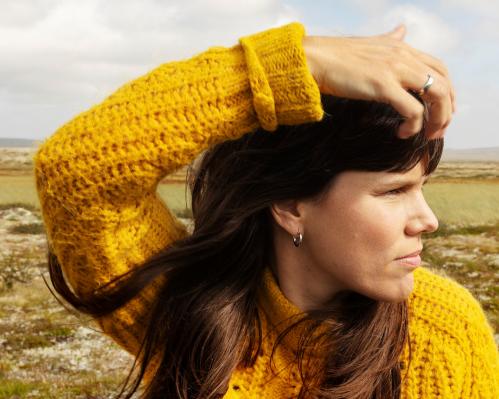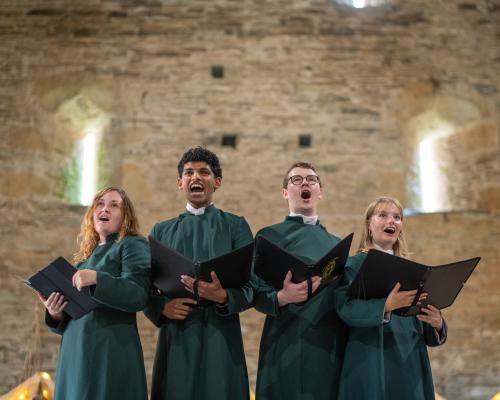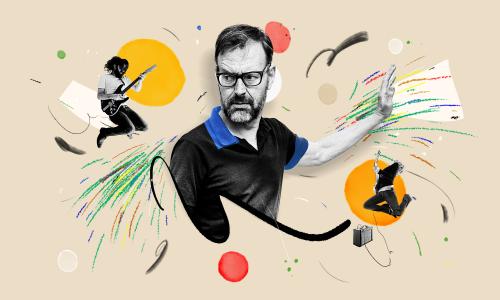
A hardanger fiddle player from the fjord-and-mountain-filled region of Norway, where the instrument comes from, Benedicte Maurseth explores traditional music, nature and landscape influenced by the idea of ecosophy, a philosophy of ecological harmony. From childhood, she studied under master hardanger fiddler Knut Hamre, exploring the tunes, styles and effects associated with her instrument: its sympathetic strings, funnelled under the fingerboard, are particularly hypnotic, vibrating in response to the notes resonating above, as they do on the sitar and sarangi.
A follow-up to Maurseth’s 2022 Nordic music prize-winning Hárr, Mirra is named after an old dialect word describing wild reindeer running together in a circling pattern. Norwegian folk’s rhythmic repetitions feed Maurseth’s intricate compositions (as do the influences of minimalism and Krautrock), but the contributions of her bandmates, and the rustling textures of animal sounds, are also key. The bass and electronics of Mats Eilertsen and the melodic percussion of Håkon Stene suggest honks and heavy steps, especially in the jangling title track and the ominous Jaktmarsj (Hunting March). The tremulous Kvitkrull (Reindeer Lichen) is influenced by 1978 Canadian film Sámi Herders, while Nysnø Over Reinlav (Fresh Snow Over Reindeer Moss) includes field recordings of 13 animals, including gyrfalcons, whimbrels and wolverines, alongside producer Morten Qvenild’s fluttering piano.
Throughout the album, Maurseth’s fiddle is bowed, plucked and droned, evoking winds and weathers of all strengths. Her tentative, edgy melody on Kalven Reiser Seg (The Calf Rises), conveying the early hours of a deer’s life, is also a highlight. Maurseth recently said she has only seen wild reindeer twice in her life, despite living near them, once in herds of hundreds when she was seven. The possibility of fleeting magic, both instrumental and animal, is her album’s sparkling backbone.
Also out this month
London duo Spafford Campbell’s Tomorrow Held (Real World) brings a dreamy idea to life – what Talk Talk would sound like making an album inspired by British traditional music. Owen Spafford’s stark playing overlays Louis Campbell’s guitar reverb and minimalist shimmers to gorgeous effect in the instrumentals, while its sole song, the Campbell-sung All Your Tiny Bones, leans towards the dreamier moments of Bastille and Alt-J. Rooted in the traditions of English folk, Americana and old time music, Antony Hurley’s Howl for More (Lanterne) is a lovely, languid set of travelling songs, written between southern Italy, Mexico and the Kent coast. Finally, Teppana Jänis (Death is Not The End) is a fizzing, century-splicing collaboration between Jänis, a Finnish zither player recorded on wax cylinders in the mid-1910s, singer Taito Hoffrén, who died in 2024, and contemporary kantele player Arja Kastinen.







